Building Momentum
Dear TBT Coalition supporters,
|
Building on the flurry of fisheries and biodiversity-focused events in 2023, which many were calling the ‘ocean super year’, members of the TBT Coalition are ratcheting up the pressure on coastal states across the globe to end the harm caused by bottom trawling and restore our oceans.
|
In February, members of the coalition descended on Vancouver to ensure bottom trawling was on the agenda at the Fifth International Marine Protected Areas Congress (IMPAC5). Meanwhile, in Europe, all eyes turned to Brussels as the European Commission released its eagerly-awaited Ocean Action Plan, which includes overdue plans to end bottom trawling in marine protected areas. In Scotland, a small-scale fishers’ association made a powerful plea to the government to protect their beleaguered coastal fisheries from bottom trawling and dredging.
|
|
Together, these actions are part of a global movement to #TransformBottomTrawling, revive once-rich coastal fisheries and protect the marine life on which we all depend.
|
|
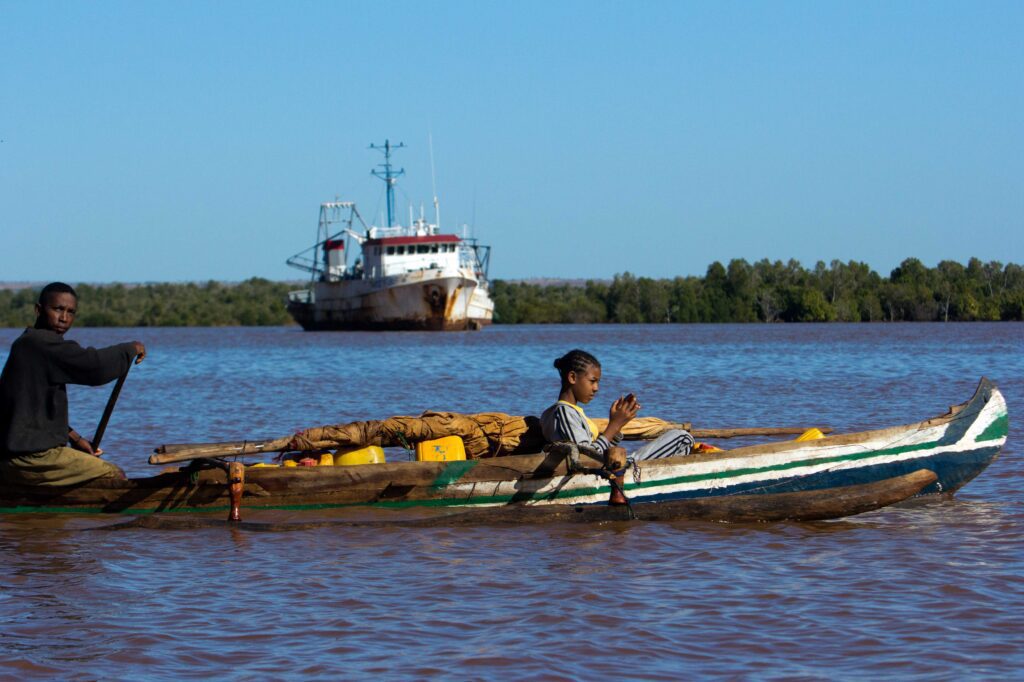
|
|
Small-scale fishers in Mahajamba, Madagascar compete with shrimp trawlers for ocean space and resources © Blue Ventures | Garth Cripps
|
|
|
Coalition Updates
|
Join our Latin America Campaign Learning Webinar
|
The TBT Coalition is hosting a series of public webinars to learn about movements to
|
address bottom trawling across the globe and exchange best practices.
|
Building on the coalition’s successful campaign learning webinar in December, we are organising a webinar on the 15th of March focused on the Latin America region.
|
The webinar will include presentations from the Confederation National Association of Artisanal Fishermen of Chile (CONAPACH), Rare Honduras, Oceana Brazil and Duke University and statements from community leaders and fishers.
|
|
Register for the webinar here.
|
|

|
|
Putting bottom trawling on the agenda at IMPAC5
|
Project Seahorse hosted a 90-minute symposium exploring the theme ‘Meaningful MPAs are key to ending bottom trawling…and ending bottom trawling is key to meaningful MPAs’. The session included five presentations which explored the role of bottom trawling restrictions in achieving conservation benefits promised by 30x30, the worrying emergence of ‘annihilation fishing’, the human costs of ending bottom trawling, how China can protect life in its seas by connecting its bottom trawl restrictions and its MPA network, and practical approaches to physically block bottom trawling in Cambodia.
|
|
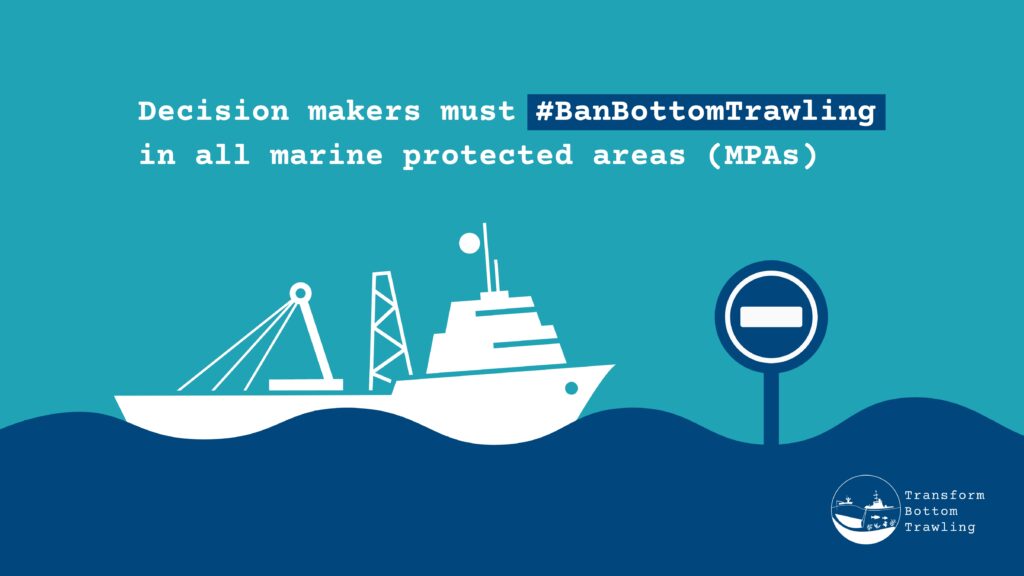
|
|
Highly anticipated EU Ocean Action Plan lacks ambition
The European Commission published its Ocean Action Plan on February 21st. The plan, which sets out the EU’s strategy to protect nature and reverse the precipitous loss of marine life, includes a commitment to prohibit bottom trawling in all EU MPAs by 2030.
|
|
While the TBT Coalition applauds the Commission’s goal, the 2030 commitment is not ambitious enough. Bottom trawling has wreaked havoc in Europe’s seas, undermining small-scale low-impact fisheries that have existed for centuries, destroying fragile marine ecosystems and producing vast volumes of carbon emissions. Decision-makers must take more ambitious action if we are to meet the scale of the crisis facing our oceans. This means earlier targets for prohibiting bottom trawling in all MPAs and urgent commitments to significantly reduce bottom trawling's footprint by 2030.
|
|
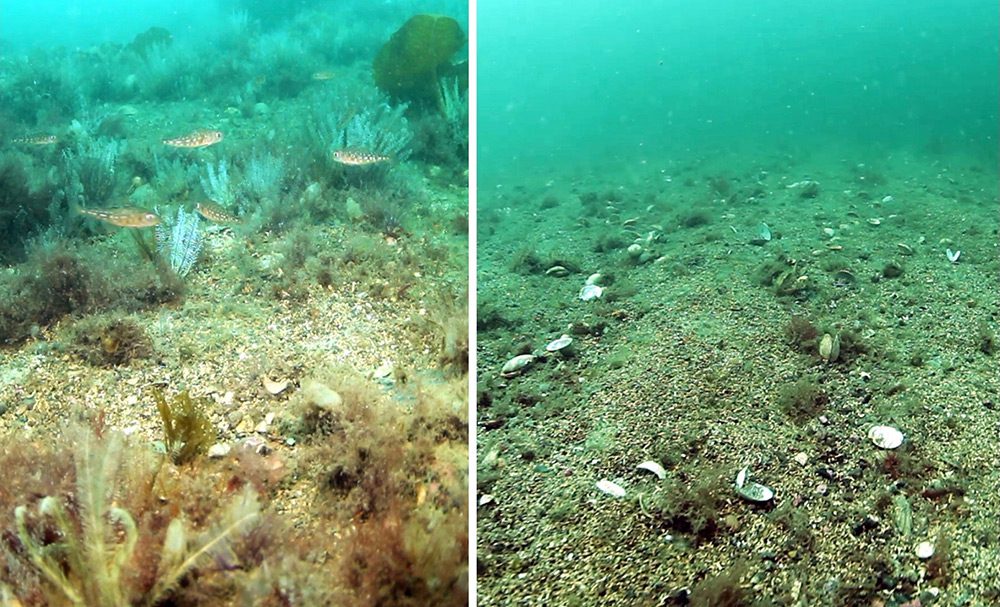
|
|
This image shows the impact that scallop dredging can have in the immediate aftermath of fishing. The left of the image shows an undredged area. The right of the image shows the same area two days after dredging took place. © Howard Wood | COAST
|
|
|
Oceana presents a pathway to decarbonise the EU fisheries sector by 2050
Oceana's EU team has released a report setting out a pathway to decarbonise the EU fisheries sector by 2050. The report reiterates that mobile bottom-contacting fisheries (such as bottom trawlers) are the most fuel-intensive fishing techniques in the EU (in terms of litres of fuel used per kilo of landed fish). It goes on to say that while fishing tends to be considered a low-carbon source of food, the most fuel-intensive and least energy-efficient fishing techniques available, such as bottom trawling, could result in emissions comparable to those of land-based animal protein production.
|
Phasing out the most energy-intensive and destructive fisheries, and replacing them with more passive fishing techniques, offers multiple win-wins for the environment, the economy and society. These include contributing to reducing global greenhouse gas emissions through reduced fuel use, increased benefits from catching higher-value fish with less fuel and lower operational costs, and protected carbon stores.
|
|
The report builds on Oceana’s earlier investigations into bottom trawling, which show that an area one-third the size of Europe’s continent is impacted by bottom trawling every year and the practice affects 86% of the area designated under Natura 2000 to protect marine habitats.
|
|

|
|
|
|
Small-scale fishers make a plea to the Scottish government to protect coastal seas from bottom trawling and dredging
In February, the National Coordinator of the Scottish Creel Fishermen’s Federation - a group of over 200 low-impact creel fishers - gave evidence to a parliamentary committee on the federation’s petition to reinstate an inshore limit on bottom trawling and dredging in Scotland.
|
The petition called on the Scottish Parliament to re-introduce a variation of the historic three-mile coastal limit on the use of mobile dredge and bottom-trawling fishing gears. If implemented, the modern #InshoreLimit would support the recovery of important fish populations and ecosystems, revitalise coastal communities and increase fishing jobs.
|
|
The petition was successful in securing the committee’s commitment to consider the issue of a potential coastal limit on bottom trawling and dredging within the wider context of inshore fisheries management.
|
|
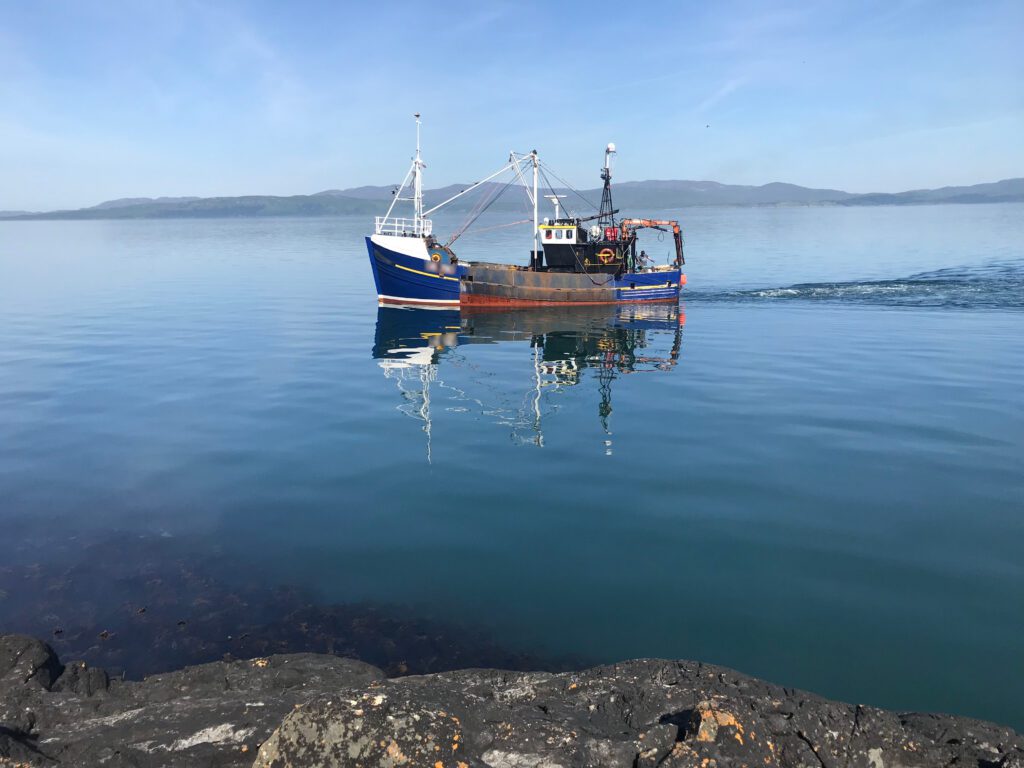
|
|
A dredger drags heavy steel rakes and chain bags across the seabed within metres of shore to catch scallops on the West Coast of Scotland. Today bottom trawling and dredging is permitted 95% of Scotland’s coastal seas.
|
|
|
Bottom Trawling News
|
Americas
|
Artisanal fishermen say life is becoming harder as industrial trawling depletes fish stocks even as they struggle to deal with climate impacts and economic headwinds
|
|
Africa
|
Fisheries that millions of Ghanaians depend on are at risk of collapse as a result of rampant illegal fishing and overfishing by Chinese-owned industrial trawlers
|
|
The Environmental Justice Foundation
|
|
Europe
|
Sensitive marine ecosystems were subjected to over 136,000 hours of industrial fishing last year, according to Oceana’s scrutiny of UK waters
|
|
UK government’s piecemeal response to harmful practice attacked as too slow to stop ‘industrial fishing frenzy’
|
|
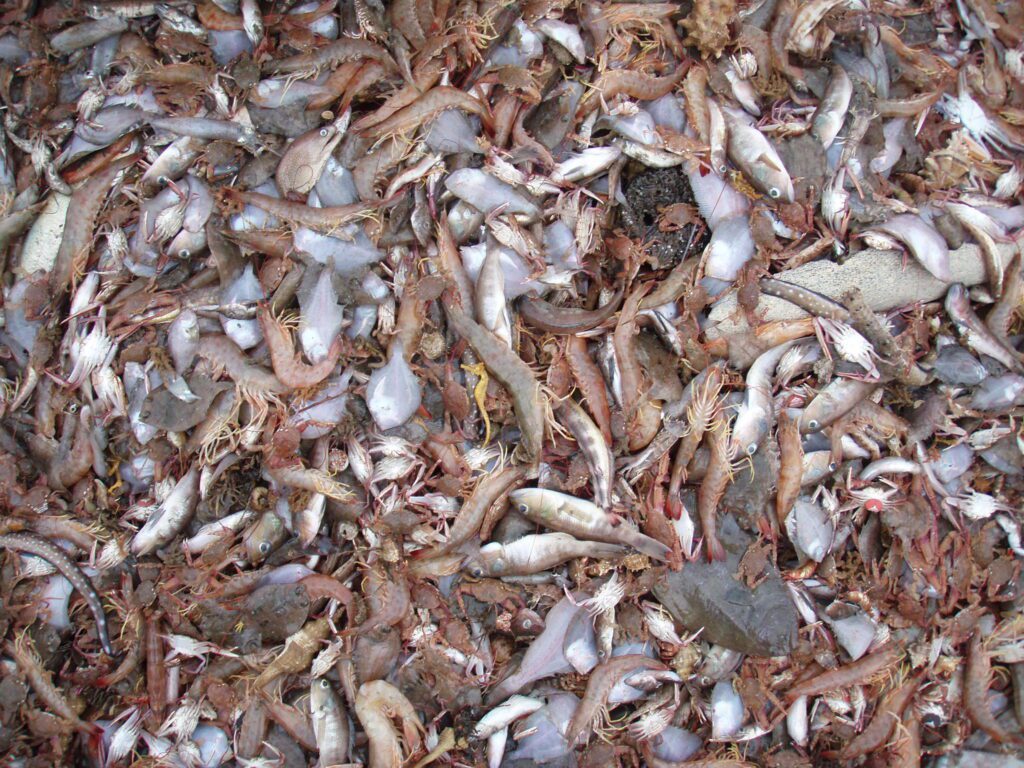
|
|
© Sarah Foster | Project Seahorse
|
|
|
|
WE WANT TO HEAR FROM YOU
|
Send us bottom trawling news or events that you’d like us to amplify via social media or this newsletter!
|
Copy and paste this social media post to help us spread the word to new audiences:
|
|
Want to keep up to date on our journey to transform bottom trawling? Sign up to the TBT Coalition newsletter to hear from the progressive coalition working to tackle bottom trawling and restore our oceans. https://transformbottomtrawling.org
|
|